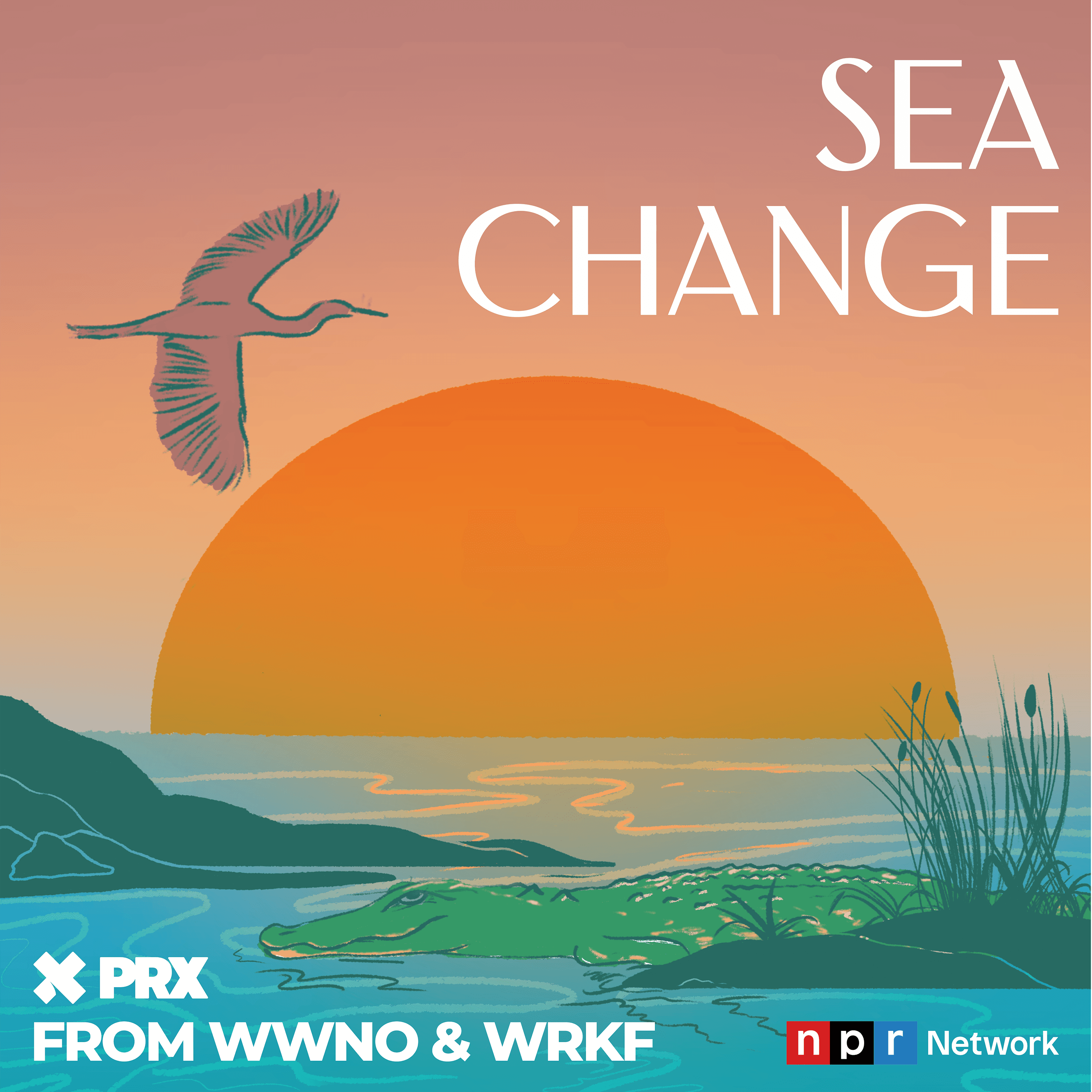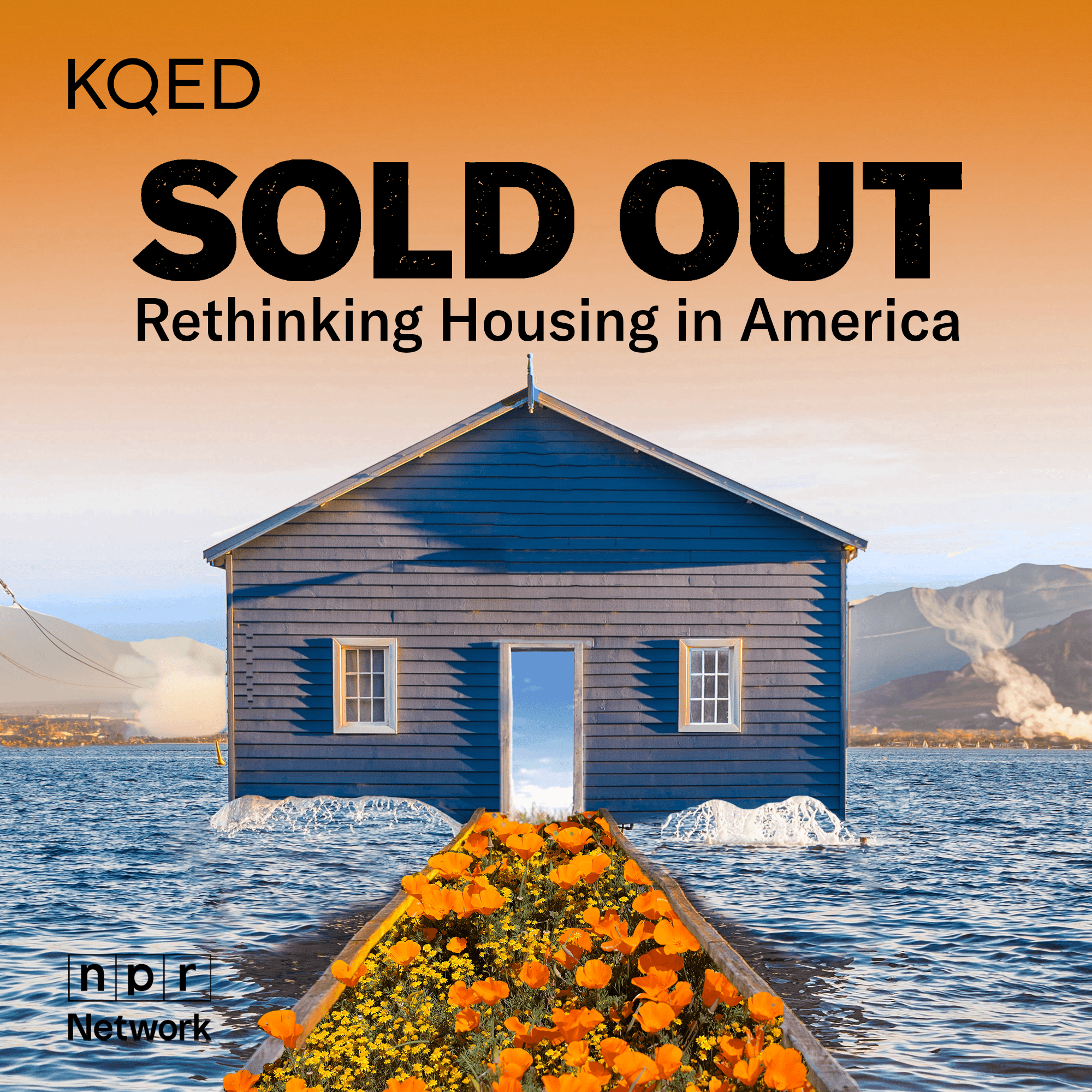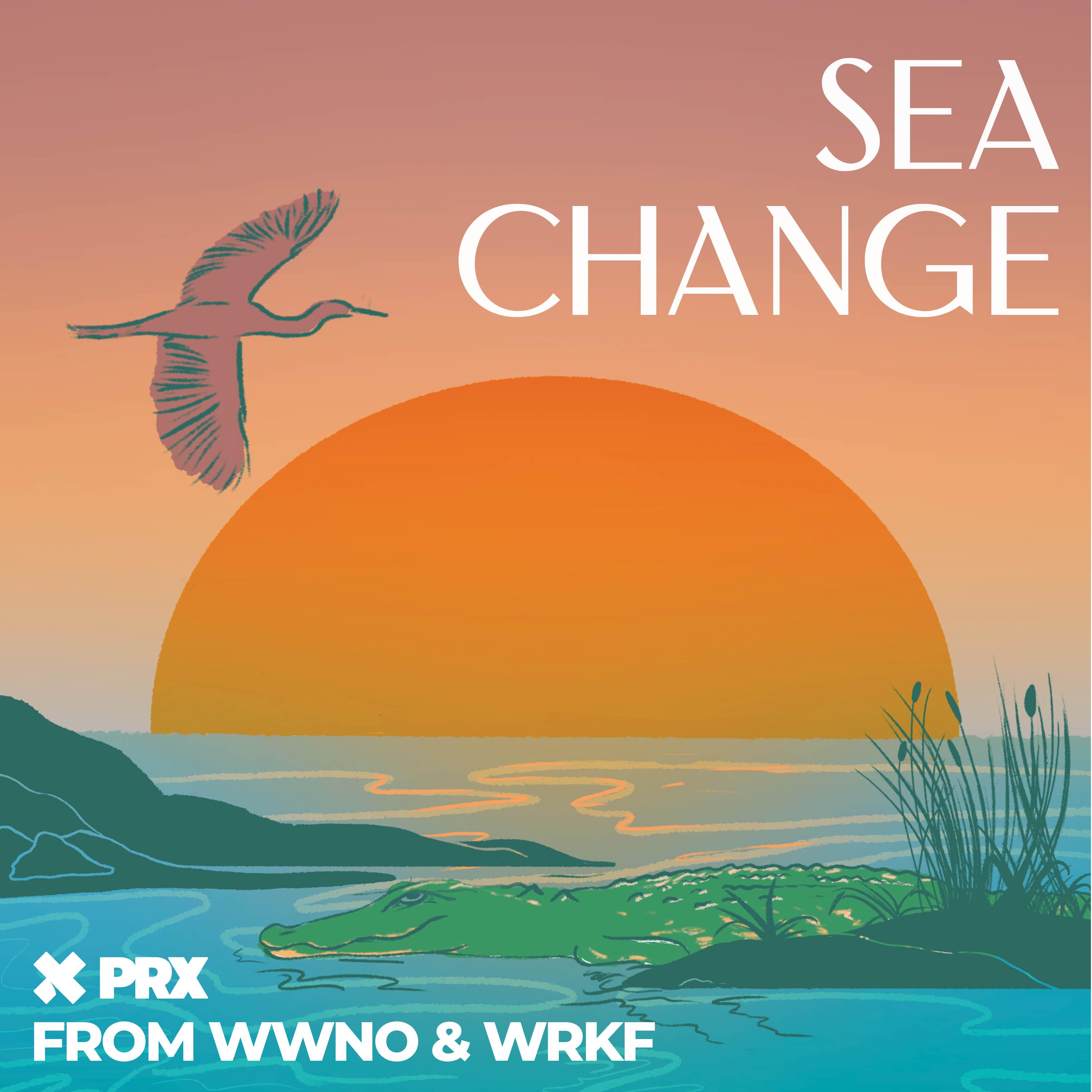
Sea Change
WWNO & WRKFLiving on the coast means living on the front lines of a rapidly changing planet. And as climate change transforms our coasts, that will transform our world.
Every two weeks, we bring you stories that illuminate, inspire, and sometimes enrage, as we dive deep into the environmental issues facing coastal communities on the Gulf Coast and beyond. We have a lot to save, and we have a lot of solutions. Join us as we investigate and celebrate life on a changing coast. It’s time to talk about a Sea Change.
Based in New Orleans, Sea Change is a production of WWNO New Orleans Public Radio and WRKF Baton Rouge Public Radio. Sea Change is a part of the NPR Podcast Network and is distributed by PRX. Hosted by Carlyle Calhoun. Our theme song is by Jon Batiste.
Sea Change is made possible with major support provided by The Gulf Research Program of the National Academies of Sciences, Engineering, and Medicine and The Water Collaborative. The Coastal Desk is supported by the Walton Family Foundation, the Greater New Orleans Foundation, and the Meraux Foundation.
Living on the coast means living on the front lines of a rapidly changing planet. And as climate change transforms our coasts, that will transform our world.
Every two weeks, we bring you stories that illuminate, inspire, and sometimes enrage, as we dive deep into the environmental issues facing coastal communities on the Gulf Coast and beyond. We have a lot to save, and we have a lot of solutions. Join us as we investigate and celebrate life on a changing coast. It’s time to talk about a Sea Change.
Based in New Orleans, Sea Change is a production of WWNO New Orleans Public Radio and WRKF Baton Rouge Public Radio. Sea Change is a part of the NPR Podcast Network and is distributed by PRX. Hosted by Carlyle Calhoun. Our theme song is by Jon Batiste.
Sea Change is made possible with major support provided by The Gulf Research Program of the National Academies of Sciences, Engineering, and Medicine and The Water Collaborative. The Coastal Desk is supported by the Walton Family Foundation, the Greater New Orleans Foundation, and the Meraux Foundation.





























































All Gassed Up, Part 2: The German Connection

Until the Ukraine War, Russia was Europe’s biggest supplier of natural gas. After the invasion, political leaders wanted off Russian gas, and fast. So, they turned to the U.S. In part two, we follow American gas all the way to Germany — Europe’s biggest energy consumer, where the energy crisis hit hardest. US LNG provided a lifeline for Germany. But what happens when a country gets hooked?
“All Gassed Up” is a special 3-part series from Sea Change. This special series is part of the Pulitzer Center’s nationwide Connected Coastlines reporting initiative. For more information, go to pulitzercenter.org/connected-coastlines.
This episode was hosted, reported, and produced by Carlyle Calhoun and Halle Parker. It was edited by Morgan Springer, Rosemary Westwood, and Eve Abrams. Additional help was provided by Ryan Vasquez and Eva Tesfaye. The episode was fact-checked by Garrett Hazelwood. Our sound designer is Emily Jankowski. Our theme music is by Jon Batiste.
Special thanks to Andy Gheorghiu, Felix Heilmann, Julian Wettengel, Boris Richter, and all of the people who helped us with our reporting in Germany.
Sea Change is a WWNO and WRKF production. We are part of the NPR Podcast Network and distributed by PRX. To see more of our reporting on LNG, visit WWNO.org/podcast/sea-change. And to help others find our podcast, hit subscribe wherever you get your podcasts, and don’t forget to rate and review!